On March 27, 2025, students of the “Environmental Design” educational programs (both bachelor’s and master’s levels) and lecturers of the Department of Interior and Furniture Design, attained online the lecture-training “Sustainable Kitchen Design” with the support of the Agency for Sustainable Development of the Carpathian Region “FORZA”, organized as part of the DRWO4.0 initiative (Transformation of the Woodworking Industry of the Danube Region). The lecture-training was conducted by Dr. Tamás Rácz, lecturer at the Department of Interior Architecture, Applied and Creative Design of the University of Pécs (Hungary).
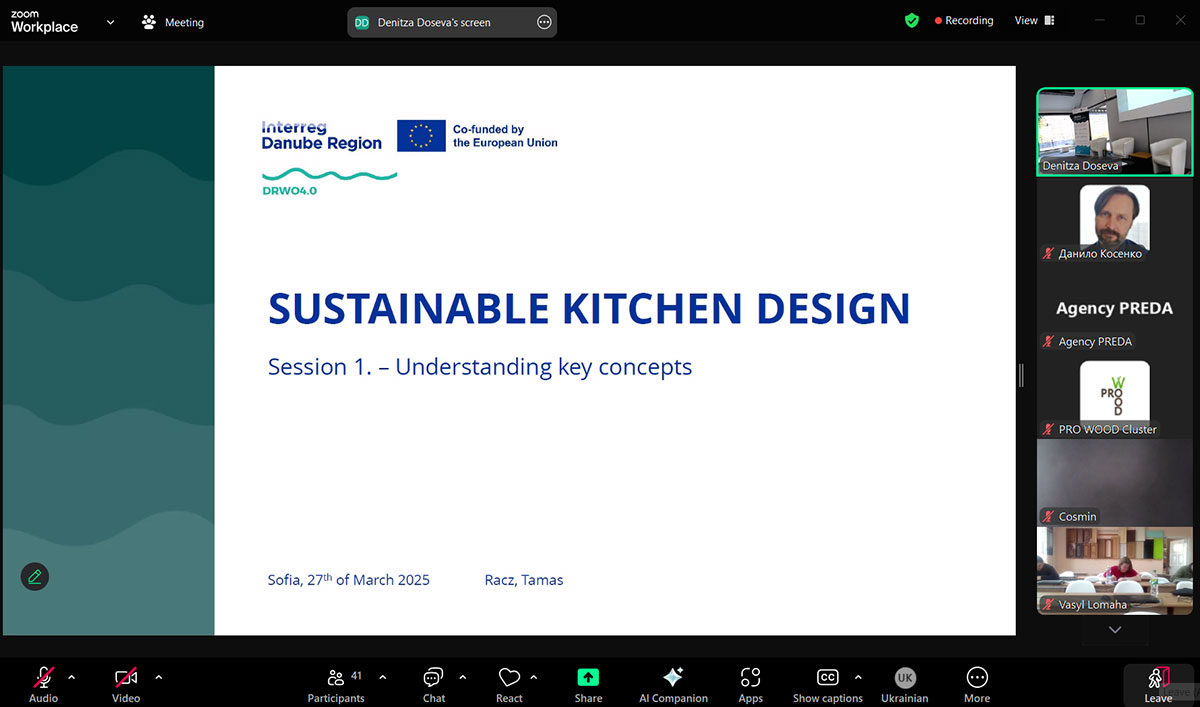
The lecturer highlighted that the European furniture industry ranks second in terms of its negative environmental impact, particularly due to the large amount of waste it generates. This calls for a more conscious approach, not only to furniture production but also to its design – emphasizing the use of recyclable materials, increasing the interchangeability of components, and enhancing the reparability of furniture products. It is essential to apply the principles of Life Cycle Design in furniture design, considering not just production and usage processes, but also opportunities for adaptation, renewal, repair, reuse of the entire product or its components, and responsible disposal.
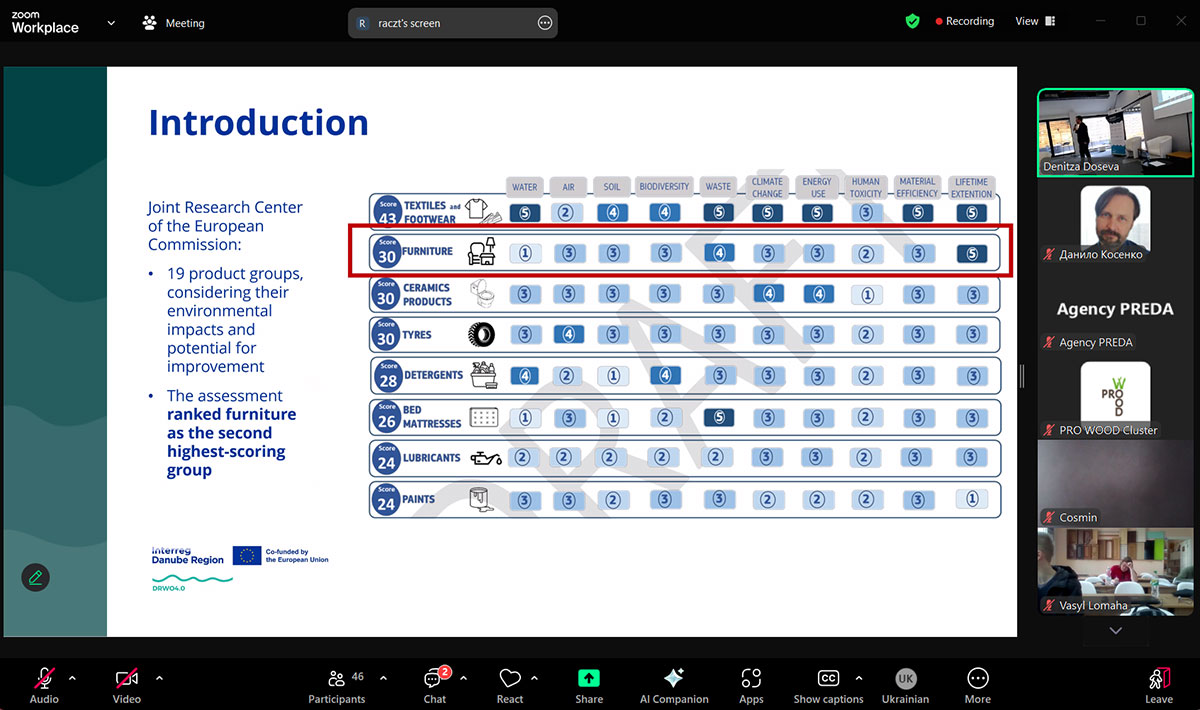
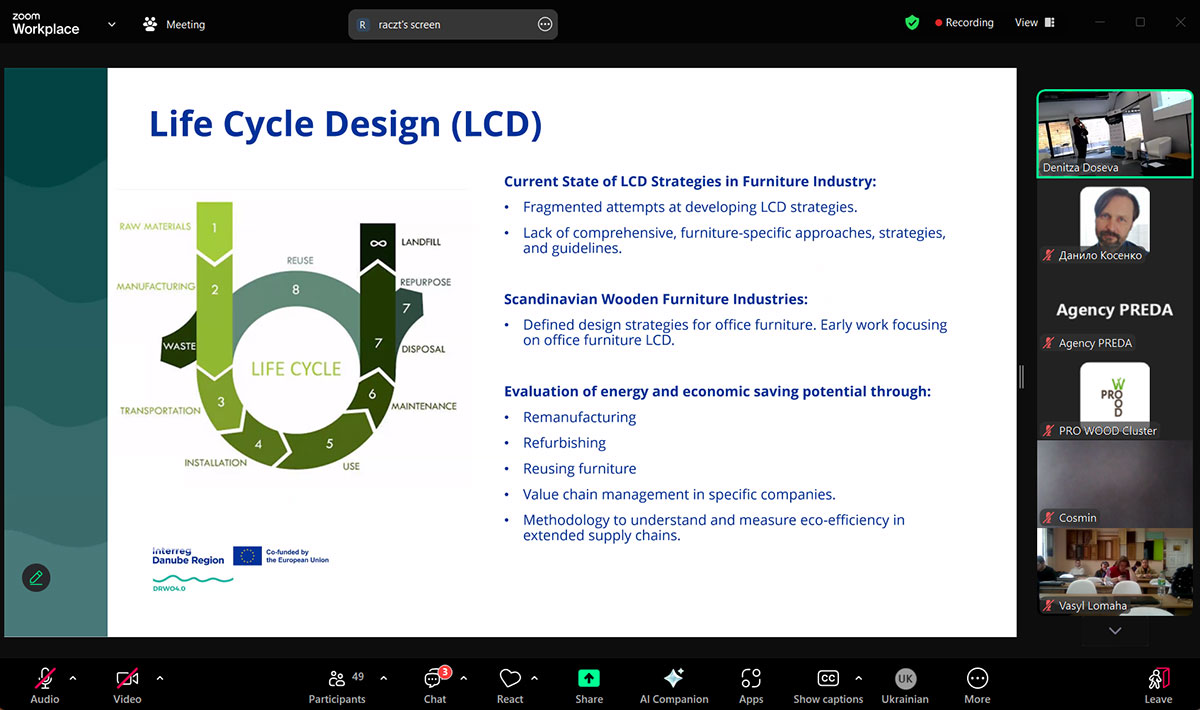
As examples of initiatives that implement this approach in furniture design, Tamás Rácz spoke about the Open Desk marketplace, which connects buyers, designers, and local furniture manufacturers, thus reducing transportation costs and supporting small furniture businesses; and the startup Loopkitchen by Stykka, which develops and produces modular furniture with interchangeable elements.
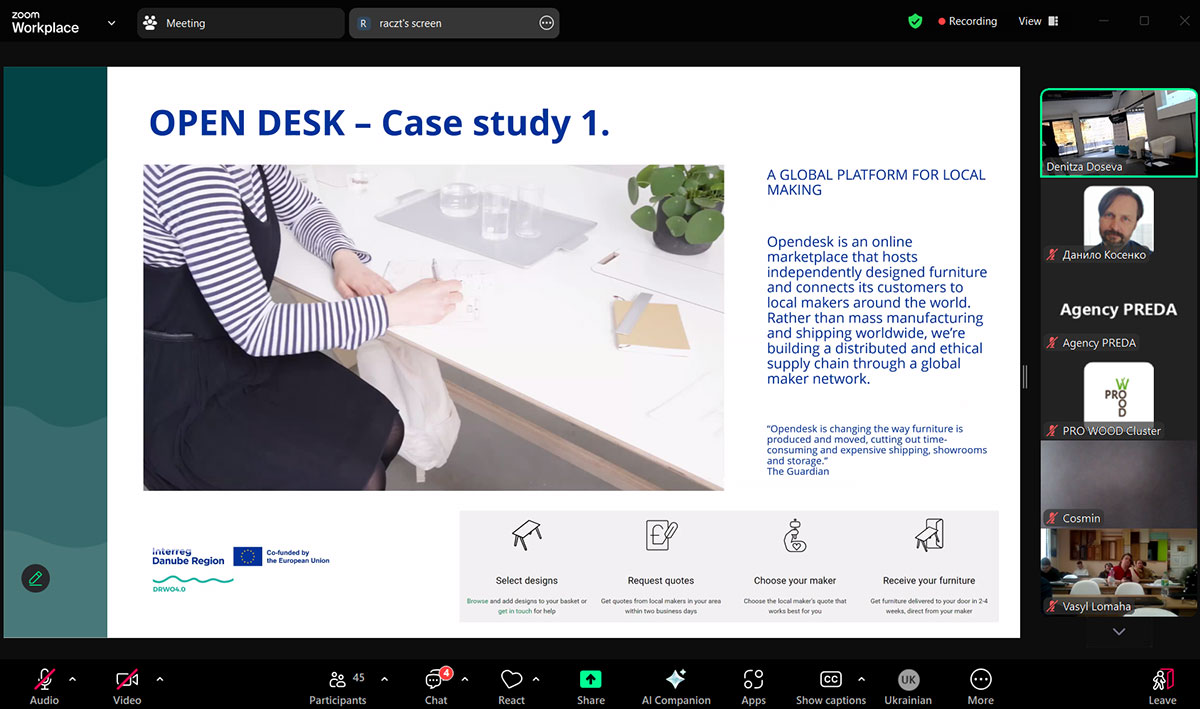
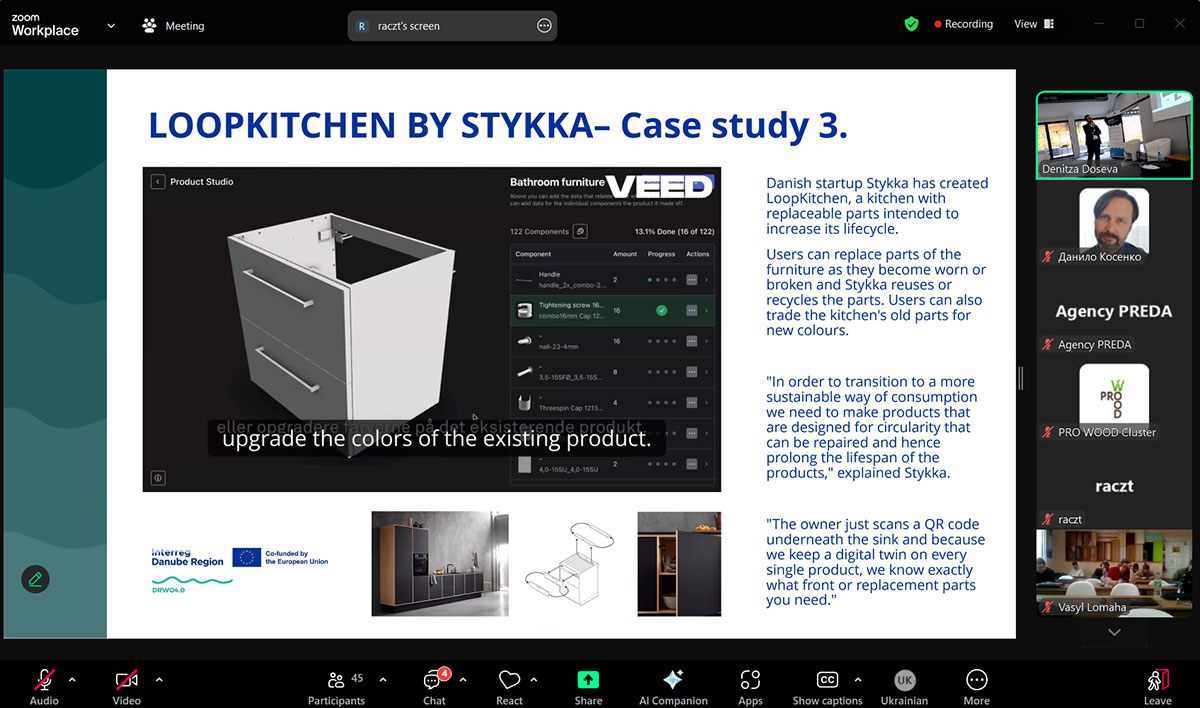
In the second part of the training, the participants discussed possible solutions to promote the design of kitchen furniture from a sustainable development perspective. Tamás Rácz summarized the session by proposing four approaches to sustainable furniture design: production of more eco-friendly materials; development of a product-service system using AI technologies to meet customers’ needs; engagement of local manufacturers in this system; design of long-lasting, repairable, and adaptable furniture products. Students had the opportunity to ask additional questions and received comprehensive answers.
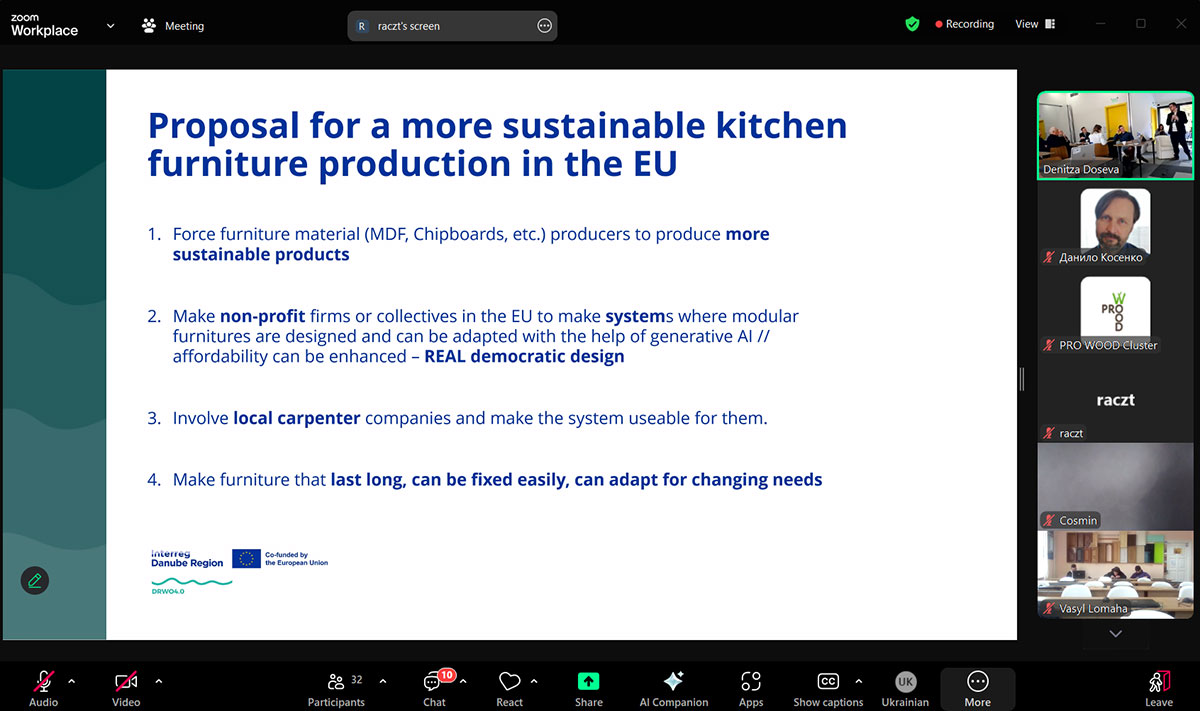
We are grateful to our colleagues for this valuable experience and the opportunity to exchange views on the future of the industry.
The materials from this lecture will be used to improve the curriculum of the following courses within the “Environmental Design” educational program: “Furniture and Equipment Design”, “Technologies and Materials in Environmental Design”, “Comprehensive Design Projecting” (bachelor’s level) and “Projecting in Environmental Design”, “Technical Means of Architectural Environment Formation” (master’s level).
08.04.2025